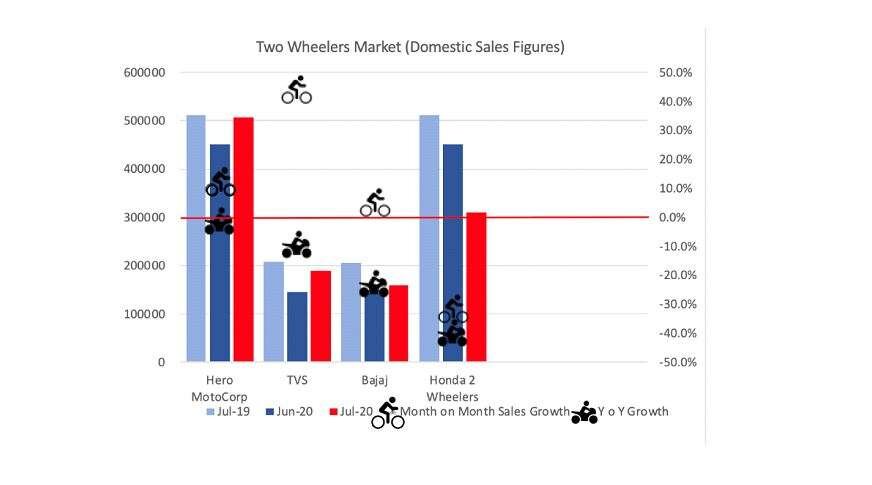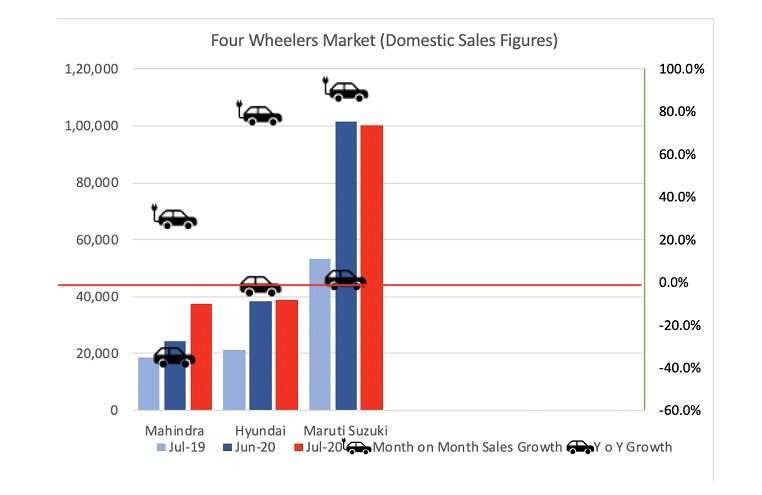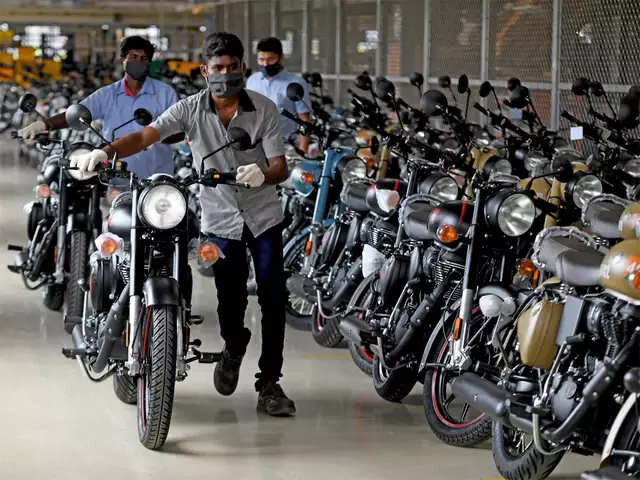Sandesh Dholakia and Badri Narayanan Gopalakrishnan
The buildup of a positive trend in sequential sales figure also hint toward a growing aggregate consumer demand which is a crucial factor to get the economy in a good shape.
Sales of various Auto companies reached almost an absolute zero for the very first time in the History of India during the full-fledged lockdown which got all of their manufacturing plants completely shut down.
Though not at full capacities, Unlock 1.0 opened up a majority of manufacturing plants all across India boosting up sales figure for July in general across the industry.
From our analysis of the numbers for the middle class affordable vehicles segment from the latest data, we attempt to understand the short term recovery from lockdown and longer term recovery from the more fundamental downturn in demand that has been happening since a couple of years ago.
Two Wheelers Segment
Across all major two-wheeler manufacturers except Honda 2 Wheelers, numbers saw a bullish trend in Month on Month (MoM) growth rates indicating a ray of hope for a better future. Whereas on the other hand, Year on Year (YoY) growth still continues to be a matter of huge concern across the industry. In order to adjust with the “new normal” manufacturers may need to adapt themselves even better and create their own USPs to outperform the industry trends.

The reason why these numbers are good for the economy is not only from the perspective of supply side drivers but also from one of demand side drivers. For middle-class families, these expenditures in households happen to be a one-time spending and which families generally do only when they have savings. This MoM growth indicates that they are willing to spend on getting a fixed asset as they hope to have a sound financial health in the near future. This suggests an increase in consumer confidence.
So, the buildup of a positive trend in sequential sales figure also hint toward a growing aggregate consumer demand which is a crucial factor to get the economy in a good shape.
Four-Wheeler Segment
The story is similar, broadly speaking, across all four-wheeler behemoth manufacturers. Sales figures saw a very strong positive build up in Month to Month Growth rates as now almost all of the manufacturers have reached 70-80% production capacity in comparison to pre Covid-19 situation.
Quarterly Reports as expected still showed a dull sight of the whereabouts of the industry. Tata Motors, a giant in four wheelers manufacturing segment reported an adversely affected Q1 FY21. Consolidated Net Revenues & Retails sales fell almost by whooping 48 % & 42 % respectively indicating the scar that Covid-19 has put on the Auto Sector.

Weak Year on Year Growth rates indicate the situation that even though the industry is performing better on a month on month basis but the destination to start operating normally and reach the long term average sales number is still far off.
Maruti Suzuki, India’s largest four wheeler manufacturer seems to lead the situation by not only correcting its monthly sales growth figures but by even bypassing it Year on Year Growth rates almost by 1.3%. The industry surely has an ideal candidate to look up to and understand the way one needs to adapt with a never seen before dynamic environment that Corona virus situation has brought with it.
Irrespective of what the past numbers show about the Auto Sector, the focus of the industry now lies toward what’s coming ahead. A stronger build-up of second wave of Corona Virus and constantly evolving Political dynamics across a lot of states still pose a great threat to the sector but at the same time these situations bring opportunities to learn from and adapt supply chains accordingly and move forward with an even cautious but an agile attitude to fight with the humongous uncertainties that lie ahead.
(Sandesh Dholakia is the Co-Founder and President, IFSA Network branch, Hans Raj College, Delhi and Researcher with Infinite Sum Modelling LLC, Seattle USA. Badri Narayanan Gopalakrishnan is the Founder and Director of Infisum Modeling Pvt Ltd, India.)
This article was originally published in ET Auto.

